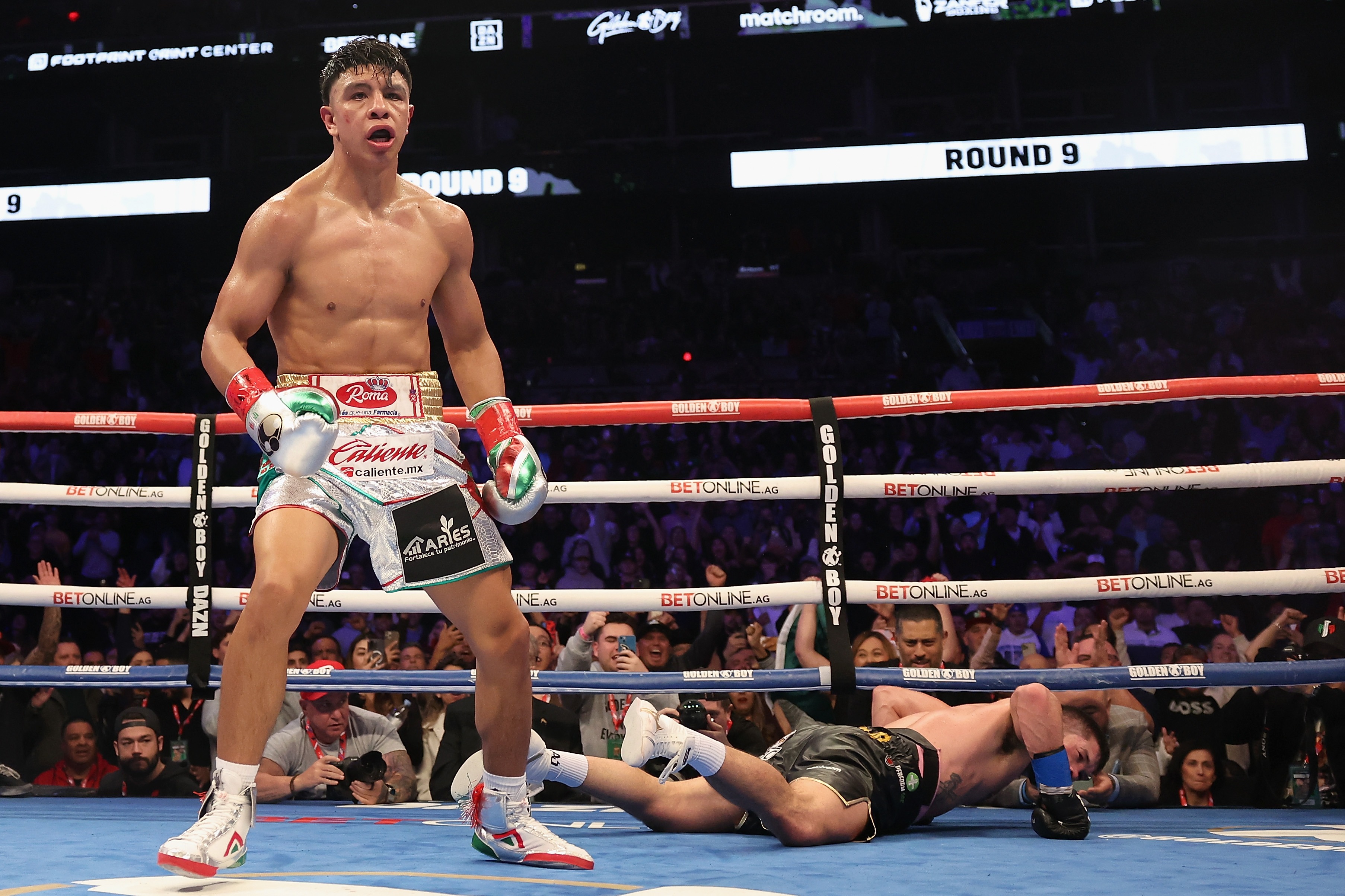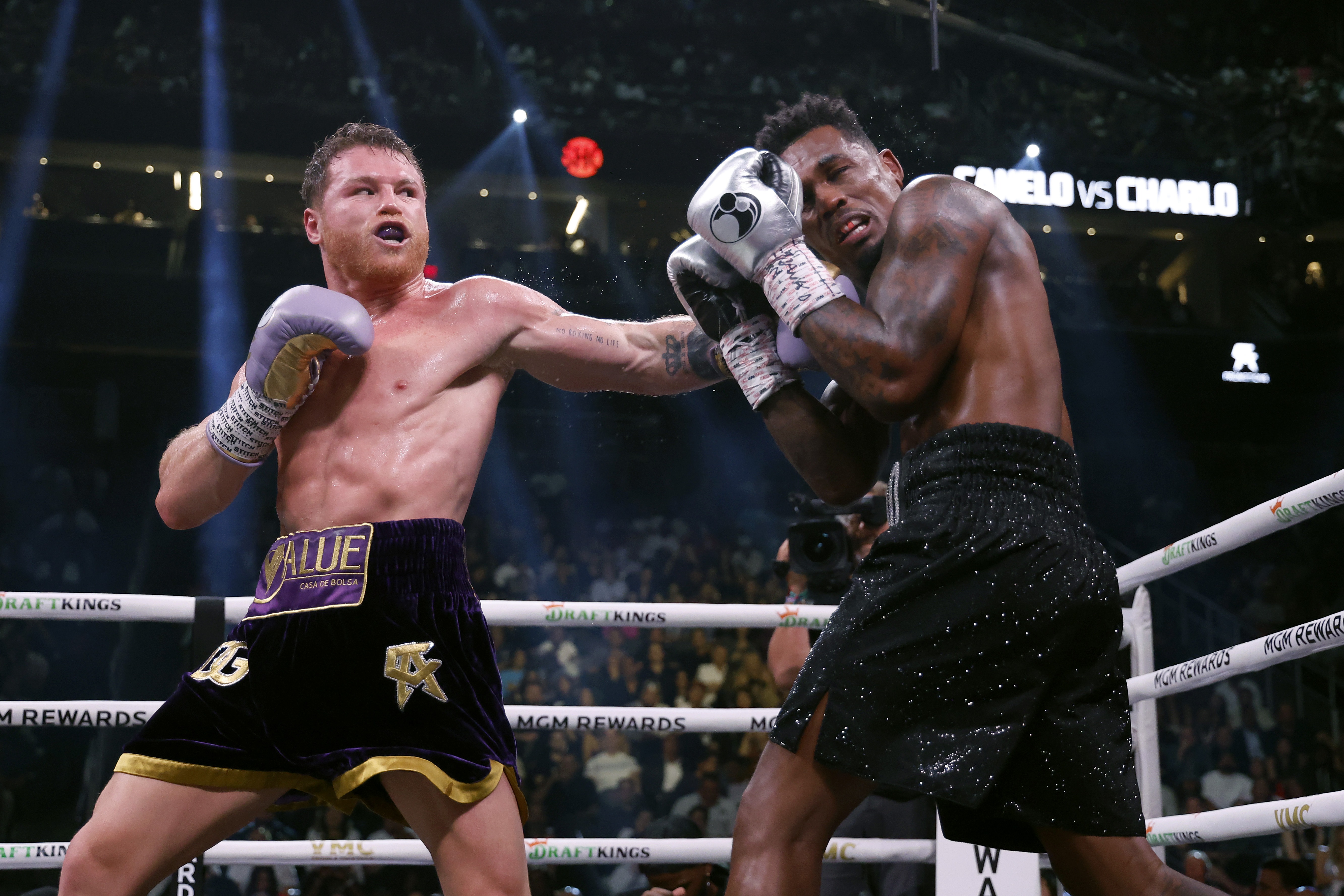Alvarez Defending Super-Middleweight Titles Against Munguia
Canelo Alvarez is gearing up for another epic battle on Cinco de Mayo, this time against fellow Mexican fighter Jaime Munguia. Alvarez's victory over Jermell Charlo last September solidified his hold on all four of his super-middleweight world titles.
Key Details of the Fight
Jaime Munguia, coming off a win against John Ryder earlier this year, is looking to upset Alvarez and claim the title of undisputed champion. If Alvarez triumphs over Munguia, fans may see a potential mega-fight against rising star David Benavidez on the horizon.
When and Where to Watch
The Alvarez vs Munguia showdown is set to take place on Saturday, May 4, at the T-Mobile Arena in Las Vegas, Nevada, during Cinco de Mayo weekend. Ring-walks for the main event are expected to start around 4.30am BST.
How to Watch Live
In the US, the fight will be available for viewing on Amazon Prime Video PPV and DAZN PPV. UK fans can catch the action on DAZN as part of their subscription. Both Amazon Prime Video and DAZN apps offer live streaming options for the event.

Full Fight Card Lineup
The Alvarez vs Munguia main event will be supported by other exciting matchups, including Mario Barrios vs. Fabian Maidana, Brandon Figueroa vs. Jessie Magdaleno, and Eimantas Stanionis vs. Gabriel Maestre, each fighting for various titles.
Frequently Asked Questions
How important is mental toughness in professional boxing?
Mental toughness, just like physical conditioning, is essential in professional fighting. The sport demands resilience, focus, the ability to handle pressure, and the psychological fortitude to overcome adversity. Mental preparation includes visualization, stress management, and developing a mindset that is ready to face the challenges in the ring. Mental toughness is essential for a boxer to be able to perform at their best under the pressure of professional competition.
How long does it take to become an elite boxer?
The time it takes to become a professional boxer can vary widely. It depends on the individual’s starting skill level, adaptability to the sport, and the quality of training received. It could take a few years of hard work and success as an amateur before a person is ready to become a professional. However, some exceptional talents might advance more quickly, while others may need more time to develop.
What should someone look for in a boxing coach or trainer?
A boxing coach should have experience in the sport, be able to work with other boxers successfully, have a compatible coaching style, as well as a solid understanding of its technical and strategic components. A good boxing trainer will also focus on safety, personal growth, and conditioning. To reach your boxing potential, you need a coach who is able to motivate and communicate well.
What kind of diet should a novice boxer follow?
A novice boxer should follow a nutritionally balanced diet that fuels intense workouts and fosters recovery. The general recommendation is to eat a combination of carbohydrates and proteins for energy. Lean protein helps repair and grow muscles, while healthy fats are good for your overall health. Vitamins and minerals are also essential. Consulting a nutritionist who specializes in sports can help create a custom diet plan for boxers that matches their training and weight-class targets.
Are there age restrictions for learning to box professionally?
Professional boxing has age restrictions. Most boxing commissions require boxers to be at least 18 years old to fight professionally. While there isn’t a specific upper age limit, health and physical factors will limit how old you can compete safely and effectively. It’s crucial for older athletes to be thoroughly assessed for fitness and risk before taking up the sport professionally.
What is the basic training program of a Boxer?
A boxer’s training routine typically consists of several key components. These include technical skills development, tactics drills, strength-and-conditioning, sparring, as well as mental preparation. Technique-focused workouts improve punch accuracy and defensive maneuvers, while tactical drills develop fight strategies. Conditioning exercises enhance athleticism, and sparring provides practical fight experience. Mental training is aimed at building resilience, confidence and focus.
How important is physical training in professional boxing?
Professional boxing requires a high level of physical conditioning. The sport demands high levels of strength, speed, endurance, and agility. Professional boxers must engage in a tailored fitness program that includes aerobic and anaerobic exercises, strength and resistance training, and flexibility workouts. A boxer cannot train efficiently and perform well in the ring without superior physical fitness.
Statistics
- Less than 10% of professional boxers are undefeated throughout their career, highlighting the sport’s competitive nature.
- Nutrition experts emphasize that over 70% of a boxer’s diet should focus on carbohydrates and proteins for energy and recovery.
- A study showed that most professional boxers have spent more than 4 years in training before their first professional bout.
- Cardiovascular fitness is critical, with a focus on high intensity interval training, comprising up to 40% of a boxer’s conditioning program.
- The average age for boxers to turn professional is between 18 to 25 years, though many continue to compete well into their 30s and beyond.
- On average, a professional boxer spars between 100 to 200 rounds in preparation for a major fight.
- Approximately 80% of professional boxers start their career in the amateur ranks before transitioning to the professional level.
External Links
precisionstriking.com
wbcboxing.com
sweetsciencefitness.com
boxingscene.com
titleboxing.com
ringtv.com
ibhof.com
How To
How to recover after intensive boxing training
It is important to recover quickly after intensive boxing training. This will improve your performance and progress. Implement a cool-down routine after workouts that includes stretching and low-intensity cardio to reduce muscle soreness. Prioritize nutrition after your workout. A mix of proteins and carbohydrates will help you recover. Hydration is vital, so replenish fluids lost during exercise. Sleep is vital for recovery. Aim for 7 to 9 hours of sleep per night. Regular use of massage and foam rollers can also reduce stiffness and promote muscle recovery.

